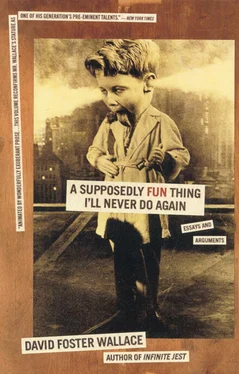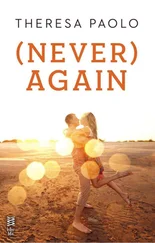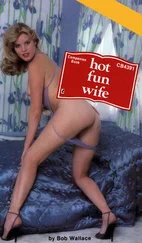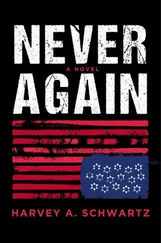Depending on whom you talk to, Lynch’s creepiness is either enhanced or diluted by the odd distance that seems to separate his movies from the audience. Lynch’s movies tend to be both extremely personal and extremely remote. The absence of linearity and narrative logic, the heavy multivalence of the symbolism, the glazed opacity of the characters’ faces, the weird ponderous quality of the dialogue, the regular deployment of grotesques as figurants, the precise, painterly way scenes are staged and lit, and the overlush, possibly voyeuristic way that violence, deviance, and general hideousness are depicted — these all give Lynch’s movies a cool, detached quality, one that some cinéastes view as more like cold and clinical.
Here’s something that’s unsettling but true: Lynch’s best movies are also his creepiest/sickest. This is probably because his best movies, however surreal, tend to be anchored by strongly developed main characters— Blue Velvet ’s Jeffrey Beaumont, Fire Walk with Mes Laura, The Elephant Mans Merrick and Treeves. When his characters are sufficiently developed and human to evoke our empathy, it tends to cut the distance and detachment that can keep Lynch’s films at arm’s length, and at the same time it makes the movies creepier — we’re way more easily disturbed when a disturbing movie has characters in whom we can see parts of ourselves. For example, there’s way more general icki-ness in Wild at Heart than there is in Blue Velvet , and yet Blue Velvet is a far creepier/sicker/nastier film, simply because Jeffrey Beaumont is a sufficiently 3-D character for us to feel about/for/with. Since the really disturbing stuff in Blue Velvet isn’t about Frank Booth or anything Jeffrey discovers about Lumberton but about the fact that a part of Jeffrey himself gets off on voyeurism and primal violence and degeneracy, and since Lynch carefully sets up his film both so that we feel a/f/w Jeffrey and so that we (I, anyway) find some parts of the sadism and degeneracy he witnesses compelling and somehow erotic, it’s little wonder that I find Lynch’s movie “sick”—nothing sickens me like seeing on-screen some of the very parts of myself I’ve gone to the movies to try to forget about.
Wild at Heart ’s characters, on the other hand, aren’t “round” or 3-D. (This was apparently by design.) Sailor and Lula are inflated parodies of Faulknerian passion; Santo and Marietta and Bobby Peru are cartoon ghouls, collections of wicked grins and Kabuki hysterics. The movie itself is incredibly violent (horrible beatings, bloody auto wrecks, dogs stealing amputated limbs, Willem DaFoe’s head blown off by a shotgun and flying around the set like a pricked balloon), but the violence comes off less as sick than as empty, a stream of stylized gestures. And empty not because the violence is gratuitous or excessive but because none of it involves a living character through whom our capacities for horror or shock could be accessed. Wild at Hearty though it won at Cannes, didn’t get very good reviews in the U.S., and it wasn’t an accident that the most savage attacks came from female critics, nor that they particularly disliked the film’s coldness and emotional poverty. See for just one example Film Comment ’s Kathleen Murphy, who saw Wild at Heart as little more than “a litter of quotation marks. As voyeurs, we’re encouraged to twitch and giggle at a bracketed reality: well-known detritus from pop-culture memory, a kind of cinematic vogue-ing that passes for the play of human emotions.” (This was not the only pan-job along these lines, and to be honest most of them had a point.)
The thing is that Lynch’s uneven oeuvre presents a whole bunch of paradoxes. His best movies tend to be his sickest, and they tend to derive a lot of their emotional power from their ability to make us feel complicit in their sickness. And this ability in turn depends on Lynch’s defying a historical convention that has often served to distinguish avant-garde, “nonlinear” art film from commercial narrative film. Nonlinear movies, i.e. ones without a conventional plot, usually reject the idea of strong individual characterization as well. Only one of Lynch’s movies, The Elephant Man , has had a conventional linear narrative. 13But most of them (the best) have devoted quite a lot of energy to character. I.e. they’ve had human beings in them. It maybe that Jeffrey, Merrick, Laura et al. function for Lynch as they do for audiences, as nodes of identification and engines of emotional pain. The extent (large) to which Lynch seems to identify with his movies’ main characters is one more thing that makes the films so disturbingly “personal.” The fact that he doesn’t seem to identify much with his audience is what makes the movies “cold,” though the detachment has some advantages as well.
trivia tidbit w/ respect to (10)
Wild at Heart , starring Laura Dern as Lula and Nicolas Cage as Sailor, also features Diane Ladd as Lula’s mother. The actress Diane Ladd happens to be the actress Laura Dern’s real mother. Wild at Heart itself, for all its heavy references to The Wizard of Oz , is actually a pomo-ish remake of Sidney Lumet’s 1959 The Fugitive Kind , which starred Anna Magnani and Marlon Brando. The fact that Cage’s performance in Wild at Heart strongly suggests either Brando doing an Elvis imitation or vice versa is not an accident, nor is the fact that both Wild at Heart and The Fugitive Kind use fire as a key image, nor is the fact that Sailor’s beloved snakeskin jacket—“a symbol of my belief in freedom and individual choice”—is just like the snakeskin jacket Brando wore in The Fugitive Kind. The Fugitive Kind happens to be the film version of Tennessee Williams’s little-known Orpheus Descending , a play which in 1960, enjoying a new vogue in the wake of Lumet’s film adaptation, ran Off-Broadway in NYC and featured Bruce Dern and Diane Ladd, Laura Dern’s parents, who met and married while starring in this play.
The extent to which David Lynch could expect a regular civilian viewer of Wild at Heart to know about any of these textual and organic connections is: 0; the extent to which he cares whether anybody got it or not is apparently: also 0.
11 last bit of (10) used as a segue into the issue of what exactly David Lynch seems to want from you
Movies are an authoritarian medium. They vulnerabilize you and then dominate you. Part of the magic of going to a movie is surrendering to it, letting it dominate you. The sitting in the dark, the looking up, the tranced distance from the screen, the being able to see the people on the screen without being seen by the people on the screen, the people on the screen being so much bigger than you, prettier than you, more compelling than you, etc. Film’s overwhelming power isn’t news. But different kinds of movies use this power in different ways. Art film is essentially ideological: it tries in various ways to “wake the audience up” or render us more “conscious.” (This kind of agenda can easily degenerate into pretentiousness and self-righteousness and condescending horsetwaddle, but the agenda itself is large-hearted and fine.) Commercial film doesn’t seem like it cares very much about an audience’s instruction or enlightenment. Commercial film’s goal is to “entertain,” which usually means enabling various fantasies that allow the moviegoer to pretend he’s somebody else and that life is somehow bigger and more coherent and more compelling and attractive and in general just more entertaining than a moviegoer’s life really is. You could say that a commercial movie doesn’t try to wake people up but rather to make their sleep so comfortable and their dreams so pleasant that they will fork over money to experience it — this seduction, a fantasy-for-money transaction, is a commercial movie’s basic point. An art film’s point is usually more intellectual or aesthetic, and you usually have to do some interpretive work to get it, so that when you pay to see an art film you’re actually paying to do work (whereas the only work you have to do w/r/t most commercial films is whatever work you did to afford the price of the ticket).
Читать дальше












